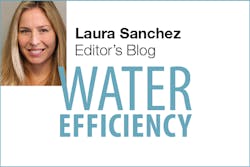“Whisky is for drinking. Water is for fighting over,” Mark Twain is famously quoted as saying. This statement resonates especially deeply today in the western US where resource scarcity, an ever-expanding population, and a changing climate have made water an increasingly precious commodity. And it appears that by purchasing arable land with access to groundwater, investors are capitalizing on water’s growing value.
Beginning in 2012, Harvard Management Co., managers of Harvard University’s $39 billion endowment fund, began snapping up vineyard properties on California’s Central Coast. Since then, the endowment has quietly, under the guise of several entities, bought thousands of acres of vineyard properties, targeting acreage atop healthy, easily accessible groundwater deposits.
The land grab sounded alarms for some, especially local farmers and residents concerned by the increasing control over water rights that the investors were quickly amassing.
According to a recent Wall Street Journal article by Russel Gold, San Luis Obispo County records show that by late 2012, Brodiaea, one of the endowment’s entities, had accumulated about 3,000 acres and had started planting vineyards. As nearby groundwater levels plunged, residential wells ran dry west of Harvard’s vineyards. Local officials scrambled to establish a moratorium on well drilling.
The day before the deadline, Harvard’s Brodiaea reportedly filed for permits to drill seven deep wells. It has since sought permitting for three reservoirs capable of storing 48 million gallons of water. Small farmers in the area are concerned about investors’ increasing influence on the future of groundwater use.
The Wall Street Journal article also points out that Harvard officials stated in the endowment’s 2012 financial report that they liked the natural-resources asset class “because we believe its physical products are going to be in increasing demand in the global economy over the coming decades.”
What are your thoughts on investors acquiring rights to water in areas where the resource is becoming increasingly scarce and therefore valuable?
